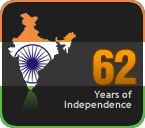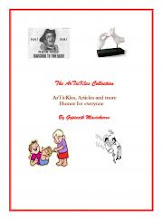For more fun posts on a daily basis, do follow me on Twitter Twitter Id: @gopinathmm
Book Review : “Jaya” by Devdutt Pattanaik
Jaya – An illustrated Retelling of the Mahabharata
By Devdutt Pattanaik
Publisher : Penguin Books
Pp: 345
Available on Flipkart and several other websites and bookstores
About the Epic
Being an Indian, it is rather likely that one has read the tales of the classic epic, Mahabharata. Or at least have watched the dramatized version of it in the TV Serial produced and directed by Ravi Chopra. The epic tale brings to our minds the war that was fought between cousins, about how all fortunes and even a wife was lost in a game of gambling and about the advice given by Lord Krishna to Arjuna before the war began, which is perhaps the ultimate truth of our lives, the much-reverred Bhagawad Gita. But how many of us do remember all the various tales, each of which has a symbolic significance to our lives even today? So it was an opportunity that presented itself to refresh my memory of giving the grand epic another reading from a proven story teller, Devdutt Pattanaik, who has amazed us time and again through his regular articles and columns ,that relate modern corporate life to ancient tales from mythology by drawing parallels in modern corporate life and inherent human nature, which remains same through time.
About the book on the author’s website
My book review

The author, Devdutt Pattanaik, also an illustrator, mythologist and a speaker, has named the epic what it was originally called – “Jaya” or Victory. But which victory is being referred to in the title here, one may wonder? Maybe the victory in the war between the Pandavas and Kauravas. Or maybe it is the victory of good over evil? Or maybe it is the victory of self over worldly human desires? The author has structured the book into 108 chapters in 18 “books” each being a tale that begins with the ancestors and takes us through the family history that sets the stage for the family aspirations that are built up leading to the epic war. One is taken back in time to the days on the planet – of instant justice, by way of hurling curses and granting boons; of the early attempts of kings to discover the virtues needed to be a good king, although history did present a King like Lord Rama, an incarnation of Lord Vishnu. The ancient times had different value systems that suited the life of humans who were proving to be superior to other animals living in the jungles, by establishing rules of early civilization – vastly different from those of our times. Times were also when there was no written texts, so stories were told by reciting verses from generation to generation and the purpose of the stories were to learn from the mistakes and successes of those who had been through life on earth. But human nature being what it is, the teachings of the tales have always been relegated to trivia and the mistakes committed by the earlier generations are repeated to “rediscover” the meaning and truths in life. One may conclude that the saga continues to date…
The book is a treat for those who would want to read the epic again with a fresh perspective. The author has provided several snippets at the end of each tale – of what the tale signifies, what values it teaches us, of what other versions in various parts of the world believe differently from the version presented – all of which prove to be very informative and interesting, unlike any other re-telling of the epic I have come across. The book is replete with apt illustrations , also by the author, Devdutt Pattanaik, who
The author has thoughtfully dedicated the book to all the scholars, authors, archivists, playwrights, film-makers and storytellers, both ancient and modern, who have worked to keep the grand ancient epic alive through their songs, dances, stories, plays, novels, performances, films and teleserials for over 3000 years.
I do not intend to cover the story of epic proportions in this review post, but would like to wish to cite here what the back cover of the book tells us about the Mahabharata.
“The Mahabharata is an ancient Hindu epic where:
A son renounces sex so that his old father can remarry
A daughter is a prize in an archery contest
A teacher demands half a kingdom as his tuition fee
A student is turned away because of his caste
A mother asks her sons to share a wife
A father curses his son-in-law to be old and impotent
A husband lets another man make his wife pregnant
A wife blindfolds herself to share her husband’s blindness
A forest is destroyed for a new city
A family is divided over inheritance
A king gambles away his kingdom
A queen is forced to serve as a maid
A man is stripped of his manhood for a year
A woman is publicly disrobed
A war is fought where all rules are broken
A shift in sexuality secures victory
The vanquished go to paradise
The victors lose their children
The earth is bathed in blood
God is cursed
Until wisdom prevails”
The book deserves to be read for the author’s power to tell a tale in a strong narrative style with the honest intention to retain the original message, as also attempting to provide the reader with the relevance of the actions and incidents as they were viewed in a society of different value systems in accordance with the times. If you wish to refresh yourselves with the tales of this wonderful epic or for some reason haven’t read the Mahabharata, do read this book by Devdutt Pattanaik!
Rating: 5/5 [It couldn’t have been better]
















